
 Xingaonai
Xingaonai
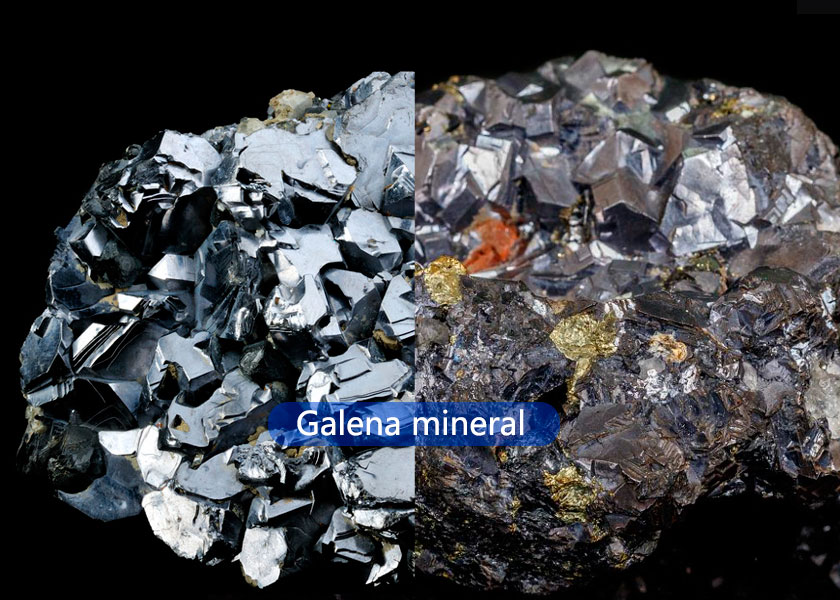
Galena is the main source of lead and a compound of lead and sulfur, with a lead-sulfur ratio of about 1:1.
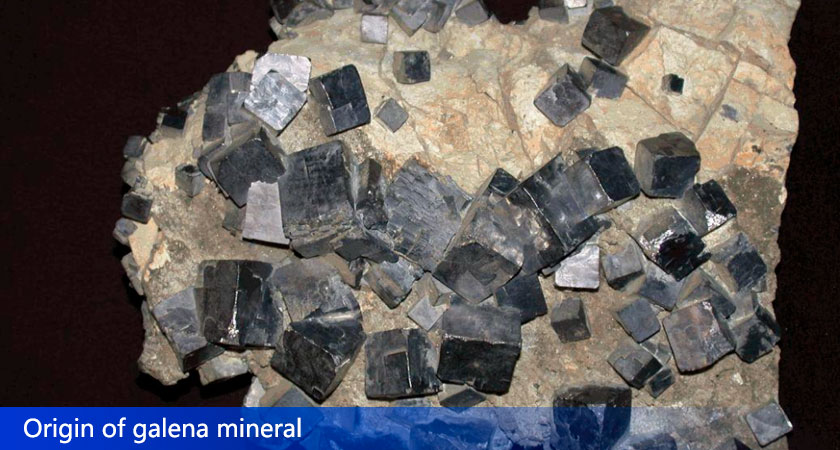
Galena is a mineral of various hydrothermal processes, usually coexisting with sphalerite, pyrite, magnetite, etc., and is weathered on the surface to form lead alum and cerussite. Galena formed in metamorphic rocks and volcanic sulfide deposits can also be mixed with copper ore. Among them, galena may also exist in coral reef limestone and dolomite limestone. It is the most widely distributed lead mineral and the most important mineral raw material for refining lead.
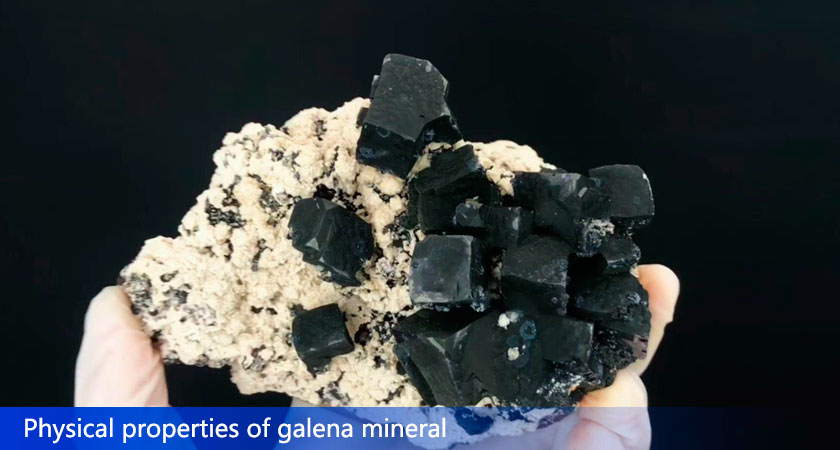
The color of galena minerals generally presents streak gray-black or lead-gray, has a metallic luster, has three parallel complete cleavages, a hardness of about 2-3, a density of about 7.4-7.6 grams per cubic centimeter, and a melting point of 1114℃. It also has good detectability and weak conductivity.
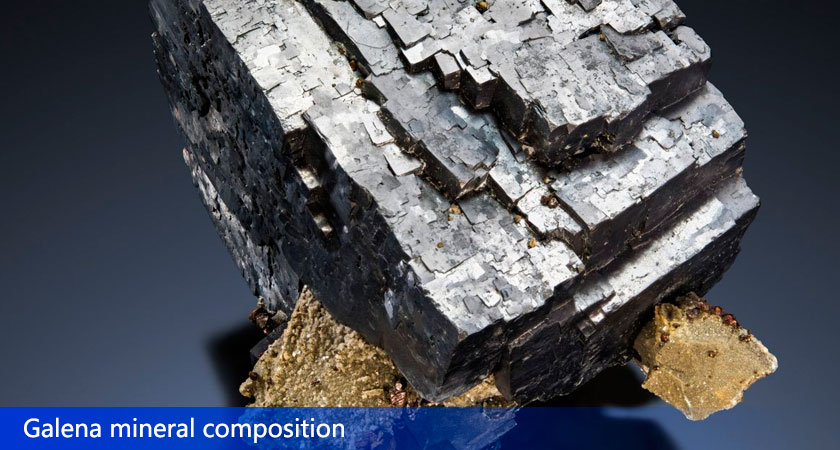
The chemical formula of galena is PbS. The main components are lead and sulfur, with a ratio of about 1:1. It is an isometric galena family mineral with a space group of Fm3m. It may contain about 1% silver, as well as other trace elements such as iron, copper, zinc, thallium, antimony, bismuth and indium. The crystal form of galena is generally cubic and octahedral, and the aggregate is generally columnar or blocky.
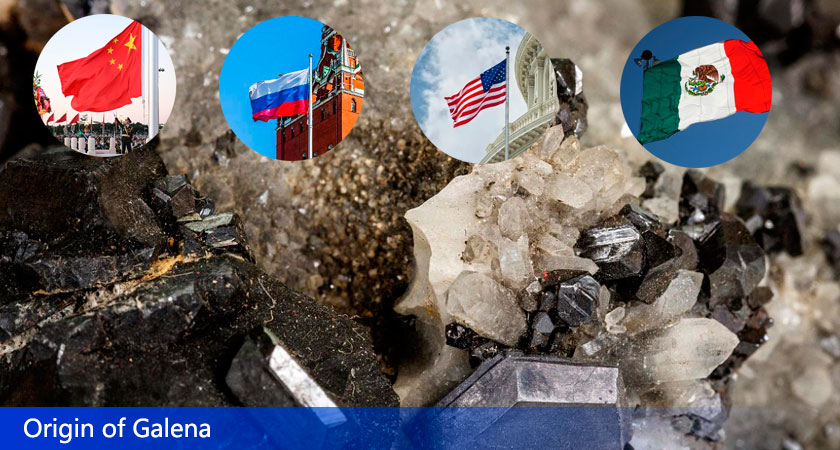
Galena is a lead mineral widely distributed around the world, with the main production areas being China, Russia, the United States, Mexico and other countries.
The ore crystals are usually of low toxicity. Because they contain metallic lead that is harmful to the human body, long-term contact with them or inhalation of lead-containing dust can cause health problems. Therefore, when galena is mined, processed and crushed, necessary protective measures should be taken, otherwise it will bring health risks.
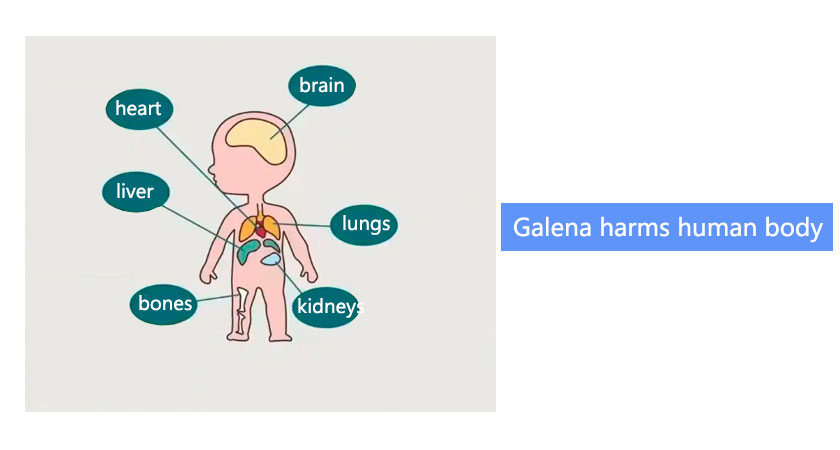
Human inhalation of lead-containing dust can have adverse effects on human health. The accumulation of lead in the human body can affect the failure of multiple organs. For children, lead poisoning can cause problems such as intellectual retardation, poor learning ability, and abnormal behavior. For adults, it may cause diseases of the digestive system, nervous system, and blood system. In addition, lead may enter the human body through other means such as the food chain, posing a potential threat to human health and the ecological environment.
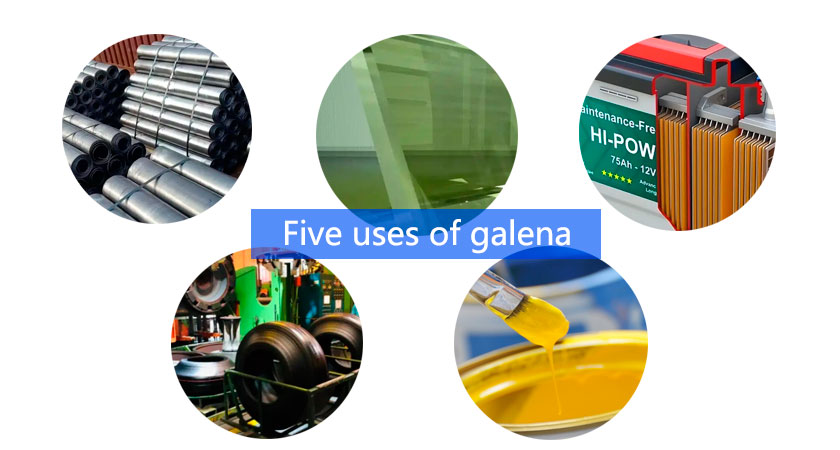
Extraction of lead
Lead mainly comes from galena, which is one of the important ores for extracting lead. Through smelting and other processes, lead is separated from many minerals to achieve mass production of lead. Because of its corrosion resistance, stability, and low cost, lead is widely used in many fields such as building materials, battery manufacturing, and automobile manufacturing.
Glass manufacturing
Because it contains rich lead oxide, it can also be used to make various glass products, such as crystal glass, ordinary glass, and glass for use. Crystal glass made of lead oxide has the characteristics of poor sound absorption, high transparency, and high refractive index, and is widely used in the production of jewelry, high-end tableware, and audio equipment.
Lead acid production
Since galena can produce lead acid, it can also be used as a raw material for chemical products such as pesticides, preservatives, dyes, and batteries. Especially with the rapid development of new energy fields such as electric vehicles, lead-acid batteries play a vital role.
Rubber Processing
Galena can also be crushed into particles and mixed into rubber in a certain proportion. It can be used as an important filler to improve the wear resistance, hardness and aging resistance of rubber. It is widely used in the processing and manufacturing of products such as pipes, rubber tires, and seals.
Pigment Production
Galena also has stable chemical properties and good coating properties. It is often used to produce various colored pigments, such as emerald green, bright red, baked golden yellow, sea blue and other pigments. These pigments are widely used in plastics, rubber, paint and other industries.
In general, galena also plays an important role in human life. Although it contains lead elements that are harmful to the human body, as long as we take protective measures during mining and processing, we can still make good use of it and make greater contributions to mankind.
Superior: No content!
Abajo: No content!
Nuestros productos se han exportado a más de 170 países de África, Asia, América del Sur, Europa, etc. Estamos aquí para ofrecerle mejores productos y servicios.
Copyright © 2024-2030 Xingaonai Group Todos los derechos reservados. Sitemap